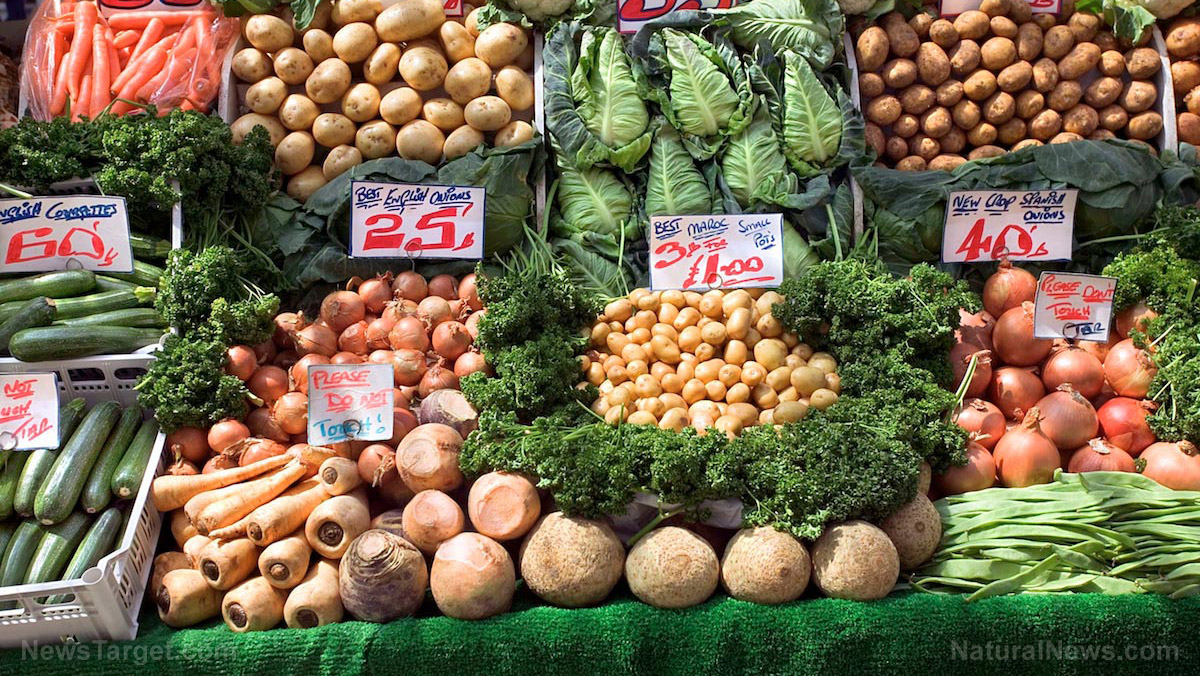Sign of the times: Consumer behaviorists find that “naturalness” impacts the success of new products to the food market
02/25/2019 / By Zoey Sky

According to a study from the ETH (Eidgenössische Technische Hochschule) Consumer Behavior group, a product’s success on the food market is primarily defined by whether or not consumers perceive it as natural.
The authenticity of the food we consume significantly affects consumer acceptance and perceptions of quality, and a broad-based review study by ETH Professor for Consumer Behavior Michael Siegrist and his Spanish colleagues arrived at the same conclusion. (Related: All-natural: Does it mean anything?)
Siegrist said, “The importance of naturalness for foodstuffs is of great practical relevance, yet it has never been the subject of in-depth research.” Out of the initial 1,000 scientific articles, the researchers handpicked 72 that were relevant to the research questions and could be correlated with one another.
The definition of naturalness was measured using three main categories: how was the product grown? (e.g. organically or in the local region); how was it processed? (e.g. presence or absence of additives, colorings, flavorings, and hormones. How much processing did a product go through? – according to consumers, “the lower the better”); and lastly: how natural does the final product appear to end consumers? Important things to consider are health and taste, freshness, and ecological focus. “Naturalness” may seem like a cohesive term, but the study reveals that it is in fact highly abstract and evokes extremely varied associations.
Siegrist shared, “It’s notable that all the studies conclude that popularity among a majority of consumers is closely linked to how natural a product is perceived as being. This was true for 85,000 participants from 32 different countries across a period of around 20 years.”
But all of the studies were carried out in relatively wealthy industrialized countries in Europe, Asia, America, and Oceania. In developing and emerging market countries, heavily processed products can be received more positively because they are expensive, which can be associated with social prestige. The same inquiry might well produce the opposite result there: a lower status given to “natural” foodstuffs and a higher one to industrially produced products, suggests Siegrist.
The comparison revealed that older people and women are more concerned with naturalness, unlike younger people and men. Consumers who buy organic products prioritize the naturalness of foodstuffs, which is the same case for people who support “traditional, sustainable, healthy, and organic products when shopping.” This implies that the study links an inclination toward naturalness with negative attitudes toward technological innovations in the food industry.
This point led the researchers to this key conclusion: “companies working with innovative food technologies – keywords: in vitro meat and 3D-printed foodstuffs – need to keep the naturalness factor in mind.” Siegrist explained, “Even though human perception is clearly subject to certain distortions, the key role that authenticity plays in the acceptance of foodstuffs is a fact. This means that products which are perceived as artificial will not be accepted by consumers in [the] future, either.”
To be successful, food producers must try to meet the “sometimes contradictory” demands of consumers.
Tips to eat healthier
If you want more “naturalness” in your diet, consider these tips on how to eat healthier:
- Eat more produce — Eating more fruits and vegetables can drastically reduce your risk for a number of chronic diseases, such as high blood pressure, Type 2 diabetes, heart disease, obesity, and cancer.
- Choose whole grains — The cleanest whole grains are those that have been processed the least, like quinoa, wild rice, and oats.
- Minimize meat intake — Clean eating also means cutting down on processed meats like cold cuts, bacon, and sausage or avoiding them altogether.
- Cut down the sugar in your diet –– To clean up your diet, avoid added sugars by limiting the intake of sweets like soda, candy, and baked goods. Even healthier foods like yogurt (eat plain yogurt), tomato sauce, and cereal can contain sugar.
You can read more articles about fresh food and tips on how to eat healthy at Fresh.news.
Sources include:
Submit a correction >>
Tagged Under:
This article may contain statements that reflect the opinion of the author
RECENT NEWS & ARTICLES
COPYRIGHT © 2017 SUPER FOODS NEWS





















